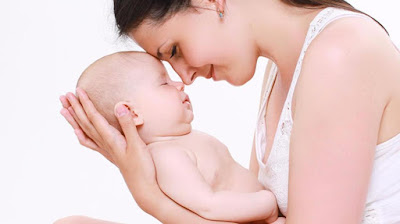Bye Bye Baby Weight!
POST PREGNANCY DIET
Wow, motherhood! With the new bundle of joy, it also welcomes some extra kilos and inches! Eager to get back to shape now that you’re no longer pregnant? Most importantly do not strain yourself for the first 6 weeks as the body needs to recover post-delivery and labour.
WHY IS POST PREGNANCY IMPORTANT?
The postpartum period involves the mother going through physical and emotional changes, adjusting to new responsibilities and changes, etc. A mother needs to take good care of herself to rebuild her strength, heal and recover from pregnancy. The mother should eat healthily and well to promote the healing and recovery.
EMBRACE EXERCISE!
A good combination of healthy diet and regular exercise is the finest way to lose those added kilos. Firstly, wait for your post-natal checkup. Exercise should start gradually like indulging in regular walks or strolls with the new-born. The key is to Stay Active. Studies have shown that a ‘return to physical activity’ after pregnancy has been associated with the decrease of postpartum depression, but only if the exercise is stress relieving and not stress provoking.
CRASH may crash!
Many new mothers compare themselves to celebrity mothers who seem to have shed their pregnancy pounds in a few days.Do not go hard on yourselves and trying strict, restrictive and crash diets is nothing but foolishness because of:
1. Rapid weight loss leads to release toxins in blood and milk too.
2. When the body does not get the required nutrients it provides it from the body stores. The new mother needs a good amount of calorie intake to keep up the energy.
PROTEIN-RICH
According to RDA (India Dietetic Association), a basic requirement of protein for a female is 50 grams per day and while lactating it increases by 15gm i.e. 65 grams solely in the first 6 months of lactation. Proteins are required for growth and development in infants and also for acquiring good milk output. Good sources of protein-rich foods can be cow’s milk, curd/paneer as this not only provides first class protein but also calcium. A judicious mixture of plant protein(dals, pulses, legumes) and animal protein (eggs, chicken) are a wise way to enhance your protein requirements.
CALCIUM-RICH FOODS
Calcium requirements accelerate during lactation to compensate for the Calcium that is secreted in mother’s milk. If the mother’s diet is deficient in calcium it would result in depletion of calcium from her bones which would make you prone to fractures. Not only them other but also the infant’s health is affected.The richest source of calcium among animal foods is milk (buttermilk, skim milk) and among plant foods (amaranth, fenugreek, drumstick leaves, ragi, banana)
HIGH FIBER
More the fibre, more the satiety which keeps you away from the urge of eating again and again. Fiber-rich foods are a good choice and make for healthy snacks. Examples of high fibre foods are fruits (apples, oranges, guava, papaya) and raw vegetables. There are innumerous ways to squeeze in more fruits and veggies in your diet is by making vegetable juices, smoothies, avocado dips, soups, stir-fries.
HYDRATION
This pointer is a cure for many issues. Drinking enough water especially during lactation is essential as they’re at high risk of dehydration. A glass of water per hour would be great as it keeps the energy levels and milk production levels up. Many people count any liquid like fruit juices or soda as a source of hydration which is a MYTH. Staying hydrated can help speed up your metabolism rates which indeed leads to weight loss.
The more you stick to the healthy diet the faster you reach your old self. Keep these tips in mind and enjoy the blissful motherhood period in a healthy way.









No comments:
Post a Comment